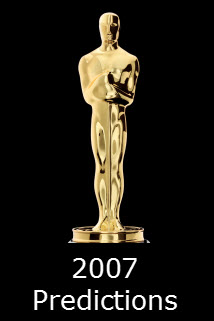The Road (2009)


Content by Tony Macklin. Originally published on November 4, 2009 @ tonymacklin.net.
Alaska has its Bridge to Nowhere. The movie The Road has its Bridge to Less Than Nowhere.
One wonders why it was made. It's misery, misery, misery. It's misery for The Man (Viggo Mortensen), The Boy (Kodi Smit-McPhee), and the audience.
The Road is a miserable movie.
When a movie is bleak and depressing, it had better be damned good. The Road is damned bad.
Why does the movie falter when the book is so damned good? It fails because it is dismal and contrived, while the book is human and intelligent. The movie lacks the book's style and gravitas.
The Road is a tale of a father and his son in a post-apocalyptic, blighted world -- probably after nuclear devastation -- as they cling to each other and try to survive. They are in a wasteland with dead vegetation and no visible animals.
It's a world of grotesque death and rot. There is little food, and marauding cannibals threaten any living thing. The father and son, who are heading for the coast and the "blue" ocean, are under constant, deadly threat.
Actually one easily can fathom why the film was made. The Road is adapted from Cormac McCarthy's 2006 Pulitzer Prize-winning novel.
Two years ago another Cormac McCarthy novel -- No Country for Old Men -- was adapted by the Coen Brothers into a movie that won the Academy Award for Best Picture of the Year. It was a brilliant adaptation, which fulfilled the novel's cinematic potential.
But The Road's director Australian John Hillcoat and screenwriter Joe Penhall are not the Coens. I'd love to see what the Coens would have done with The Road. I'm not sure how they would have made a better movie, I just know they would have.
The Road is a prime example of the differences between literature and film. It's an ungodly challenge. Cormac McCarthy's novel is a work of literary art. The movie is sketchy patchwork. McCarthy puts flesh and humanity on his work's bones; the movie is emaciated.
A lot has to do with the creative force behind the work. Why do we care about the boy and his father in the book and care little about them in the movie? Why does the movie seem pointless, when the book seems profound?
It comes down to Cormac McCarthy. His language is potent -- it can be mesmerizing. His language makes the horror palpable and the ideas mind-rattling.
McCarthy's words are fraught with ideas. The novel is bristling with the man's tormented ponderings, sharp insights, philosophical observations, dark thoughts, and creative ruminations.
Cormac McCarthy's dialogue is basic, but it's qualified and intelligent. Screenwriter Penhall makes it conventional and obvious.
In a speech between the man and Ely (Robert Duvall), an old man that the father and son meet on The Road, Penhall shows this to the movie's decided disadvantage.
In the scene in the book the man asks Ely about seeing his son, You thought he was an angel? [McCarthy doesn't use quotation marks.]
Ely responds, I didn't know what he was.
In the movie, Ely says he thought he had gone to heaven and seen an angel.
Penhall takes a statement of uncertainty and makes it blatant.
Following that, the man says of his son, What if I said that he's a god?
In the movie it becomes, he's a god.
Penhall never met a nuance he couldn't kill.
McCarthy's style sometimes reflects the blunt clarity of Hemingway -- "This is a good place, Papa, he said." But McCarthy is more descriptive and vivid.
In the brutal, blasted world of the novel, the relationship between the father and son -- isolated in their forlorn microcosm -- shines through. Cormac dedicated his novel to his own son John Francis.
The movie isn't able to equal the book's kinship. Viggo Mortensen and Kodi Smit-McPhee are more than adequate but less than memorable. Charlize Theron, as the wife and mother who dies, is never able to achieve the heft the role deserves. It's more the fault of the screenplay than her acting ability.
She is hoisted on the contrivance of flashbacks. The flashbacks in the movie are awkward and intrusive. Viggo's voice-over narration doesn't help.
Mortensen, a gifted actor, basically is one-note -- protect the boy, show him the pistol, and move for movement's sake. And show your naked bum.
The Road was delayed and now finally is being released. I imagine the studio screwed with the movie, trying vainly to make it more commercial. They probably just made it less artistic. A rainbow, a dog....
A key scene now has a dog in it. [McCarthy in an earlier scene in the novel had the man and the boy hear the sound of an unseen dog in the distance]. The scruffy mutt that appears in the movie makes it seem as though it is a commercial for a vacuum cleaner or a credit card. It's almost laughable. It certainly isn't Cormac McCarthy.
Neither is the movie.








